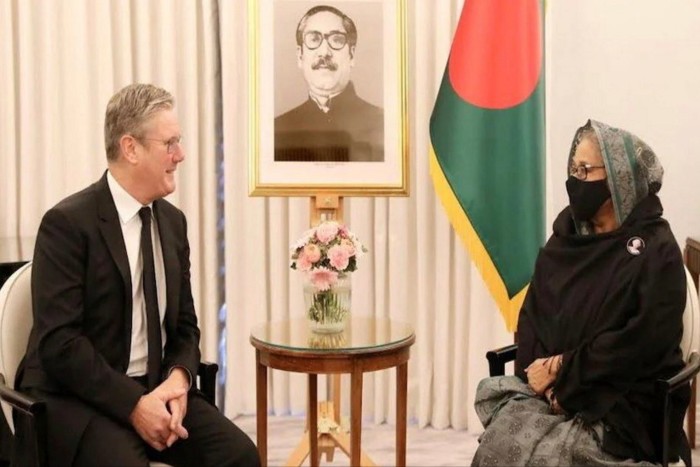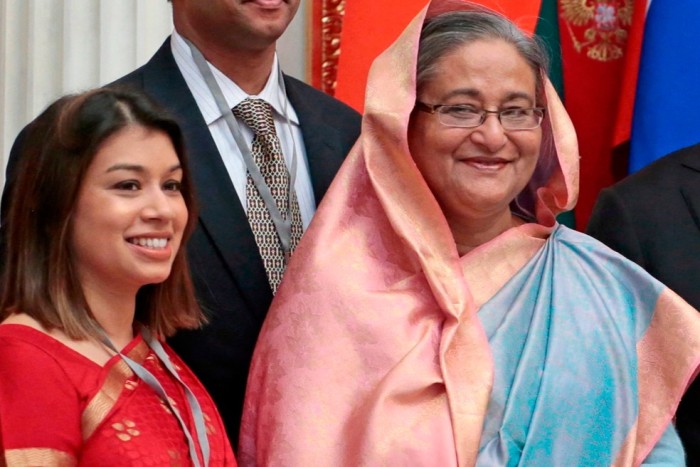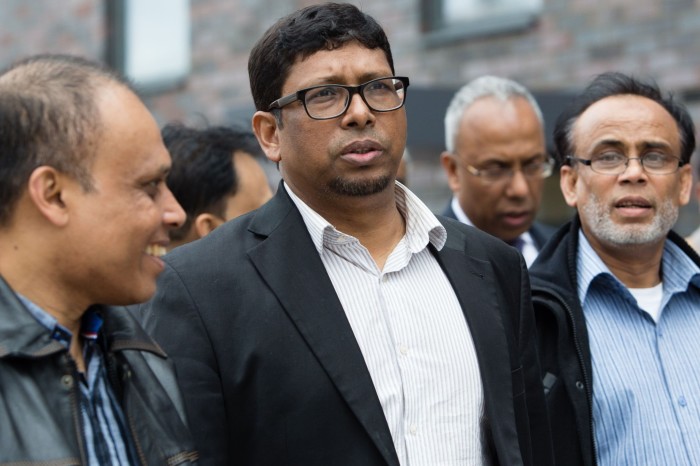Sir Keir Starmer met with a senior member of Bangladesh’s ousted ruling party last month, despite the Awami League facing accusations of embezzlement and allowing its security forces to kill protesters.
The UK prime minister met Anwaruzzaman Chowdhury, the ousted mayor of the city of Sylhet and a key party figure, at a dinner hosted by Labour in Glasgow’s Crowne Plaza Hotel in December. They were photographed conversing at the black-tie event for Labour party supporters.
This meeting marked the culmination of years of collaboration between the Awami League and Labour, which helped the UK party gain crucial parliamentary seats and connect with the Bangladeshi community in Britain.
However, corruption allegations against certain members of the former ruling family in Bangladesh have involved Starmer’s City minister, Tulip Siddiq, raising concerns about the longstanding relationship between the two parties.
The Awami League, led by Siddiq’s aunt Sheikh Hasina, governed the South Asian country for 16 years before being overthrown in a student-led uprising last year.
During the summer, hundreds of people in Bangladesh were killed in clashes between police, Sheikh Hasina’s supporters, and protesters. Forces associated with the regime were accused of using excessive force, including live ammunition, against civilians.
Siddiq was implicated in a probe last month by the Anti-Corruption Commission in Bangladesh for allegedly diverting $5bn from a nuclear power plant project. Her family denies all accusations.
Recently, Siddiq referred herself to the government’s ethics watchdog after reports emerged that she had received a £195,000 property in London’s King’s Cross from someone linked to the Awami League.
Social media posts show the close ties Labour has developed with the Awami League over time, including endorsements from Bangladeshi politicians.
Starmer has been seen accepting a donation from an individual associated with the Awami League on behalf of Labour. He and Sadiq Khan, the Labour mayor of London, have also been photographed meeting key figures like Chowdhury.
Khan expressed his pleasure in meeting Chowdhury last May after receiving his endorsement before the mayoral elections in London.
Chowdhury did not respond to requests for comment.

This relationship has enabled Labour to engage with the Bangladeshi community in Britain ahead of general elections. Analysis suggests that in at least 17 parliamentary seats, the Bangladeshi voting-age population exceeded Labour’s winning majority in the previous year.
Starmer’s constituency of Holborn and St Pancras, where he secured around an 11,000-vote majority, has over 6,000 eligible voters of Bangladeshi descent.
Awami League supporters campaigned nationwide for Labour in the last general election, participating in events in Lancashire and Greater Manchester, and accompanying Siddiq on campaign trips, according to social media posts and sources.
A Labour official mentioned that the party’s connections with the Bangladeshi community were partly facilitated by Siddiq’s association with her politically influential family in Bangladesh.
Her grandfather, Sheikh Mujibur Rahman, played a crucial role in the country’s independence in 1971 before being assassinated, along with many other family members. Only Siddiq’s mother, Sheikh Rehana, and her aunt survived.
“Siddiq’s family is considered the Kennedys of Bangladeshi politics,” the official stated.
Sheikh Hasina, who won her fourth term in 2023 amid allegations of election manipulation, had been seen as a secular figure counteracting Islamist politics in the region. However, her regime faced accusations of financial malfeasance and unjust detainment of dissidents.

The International Crimes Tribunal in Bangladesh recently issued arrest warrants for Sheikh Hasina and 11 top officials over alleged enforced disappearances.
Chris Hopkins, political research director at pollster Savanta, mentioned that Labour relies more on the diaspora vote compared to other parties, necessitating alliances to reach certain communities.
“While this may not be a priority in Westminster, it is crucial for these communities, and Labour may be unfairly associated with these issues,” Hopkins added.
Labour Friends of Bangladesh, established in 2005 and increasingly linked with the Awami League, has been instrumental in coordinating Labour’s campaign efforts.
“In recent years, Labour Friends of Bangladesh has been heavily involved in promoting the Awami League,” said Ohid Ahmed, a former member who founded the group but left Labour in 2010. “It was challenging for individuals supporting other political parties to attend their meetings.”

Howard Dawber, chair of Labour Friends of Bangladesh since 2010 and London’s deputy mayor, clarified that the organization has supporters from all parties and has worked to avoid getting involved in Bangladeshi politics.
Labour may now need to reconsider using the Awami League as a channel to engage with minority communities.
“Despite changes over time, Labour still believes it has strong support in the community through its association with the Awami League,” said Ashraf Hoque, an associate professor at University College London. “Treating British-Bangladeshi voters as a homogeneous group perpetuates unhelpful narratives about the community.”
Labour stated, “It is common for politicians to meet individuals from around the world to discuss issues of mutual concern such as trade and security, and this does not imply an agreement with their policies.”
Additional reporting by Oliver Hawkins




